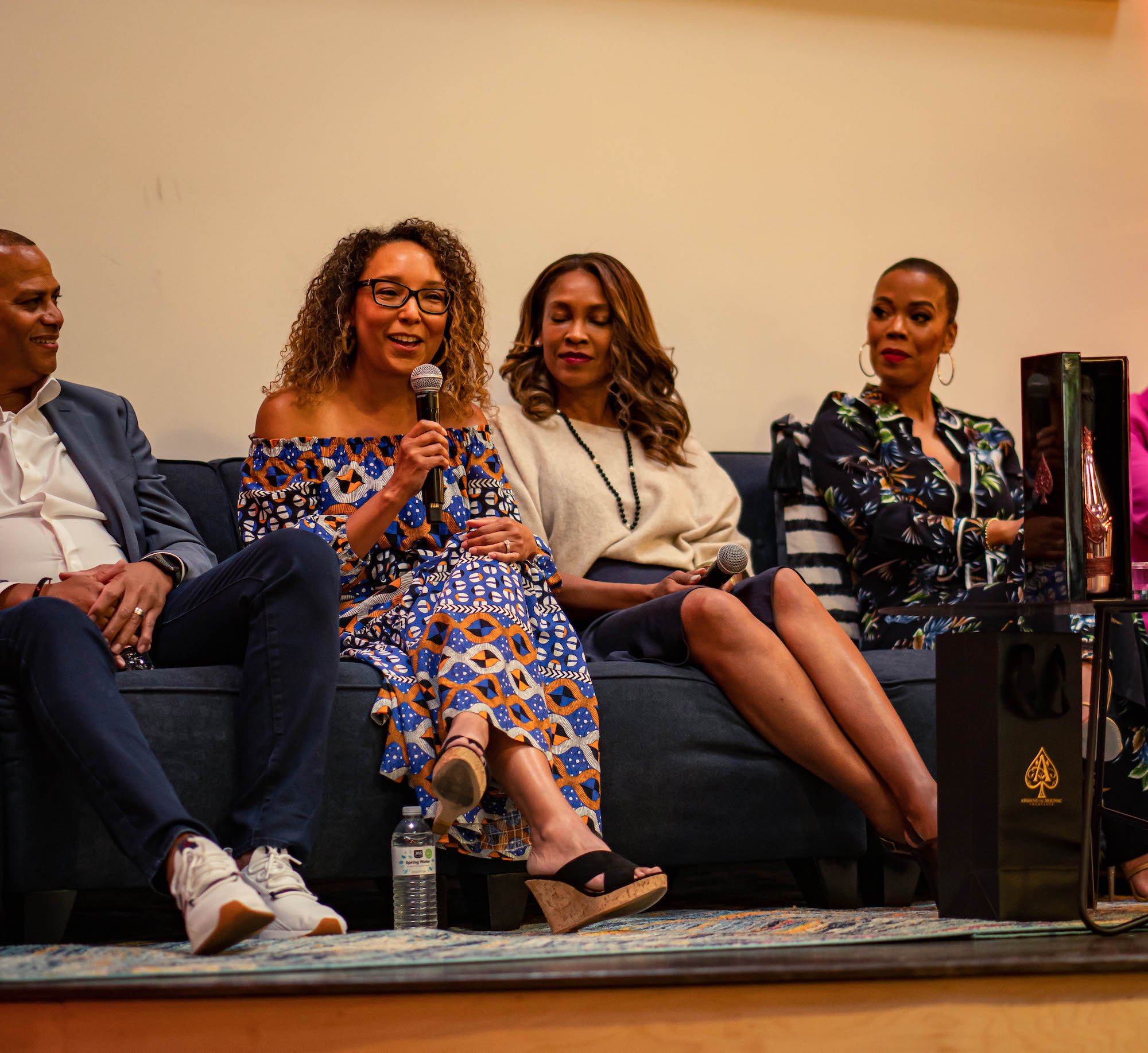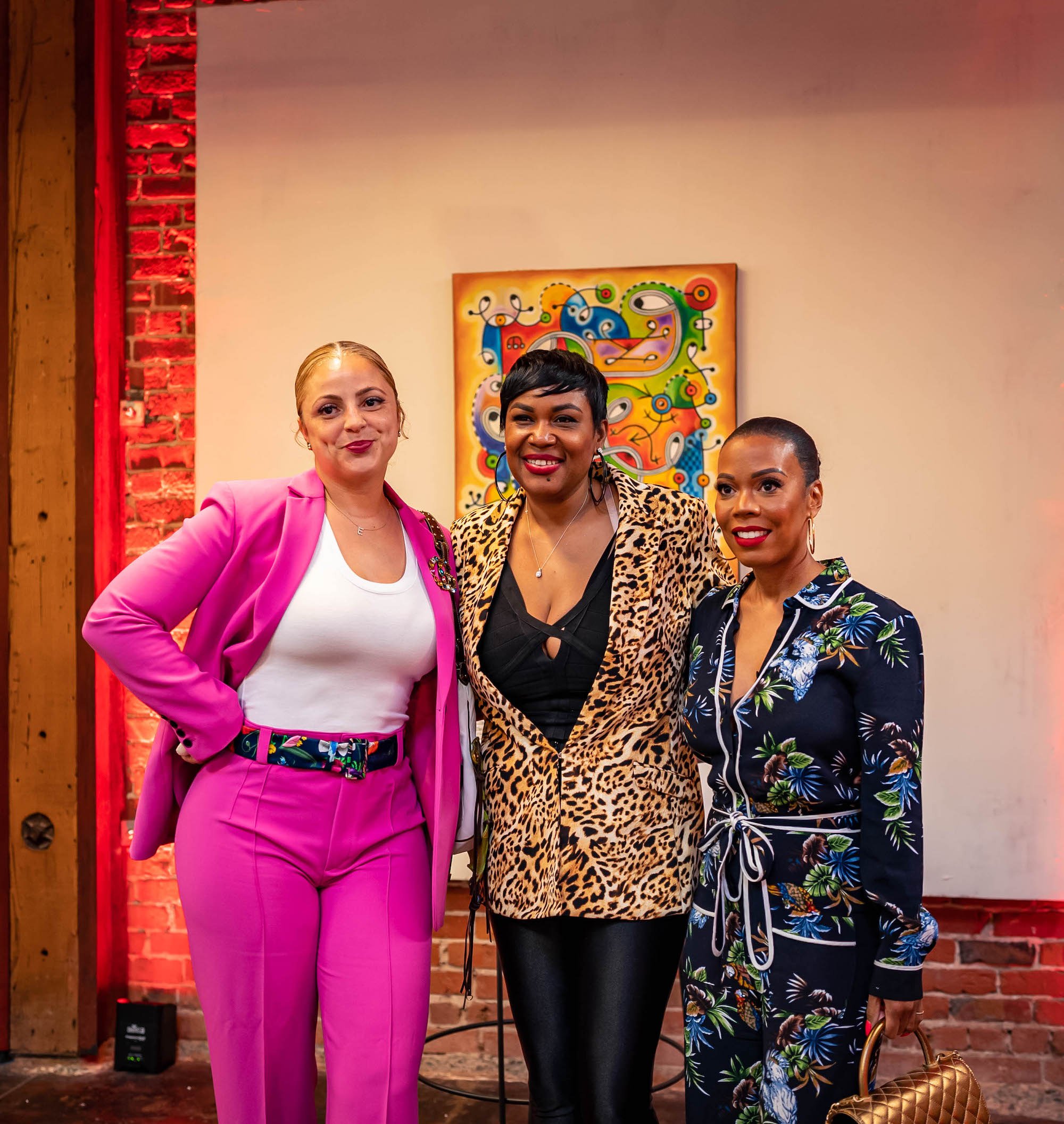5 Key Business Takeaways from the Black Food & Wine Summit
With shutdowns, supply chain issues and rising costs, being an entrepreneur in the midst of a pandemic hasn’t been easy. And it’s been especially challenging for Black-owned enterprises, who have less access to investment capital, inherited wealth, or generational business acumen to draw upon.
Despite these challenges, Black Americans have a strong entrepreneurial spirit. A recent study by Harvard Business Review found 17% of Black women are in the process of launching a new business, compared to 10 %of white men. But only 3% of Black women are running those businesses long term. To help more of these start-ups thrive, seasoned Black entrepreneurs and corporate wine and spirits executives shared wisdom and success strategies at the recent Black Food & Beverage Summit.
The June 16 summit was presented as part of the Black Food and Wine Experience, a series of sold-out tastings and dinners created by Oakland native Aminah Robinson-Briscoe to showcase Black winemakers, restaurateurs and food entrepreneurs. “I wanted to give a voice for more entrepreneurs to tell their story and for people to listen and harness that wisdom,” said Robinson-Briscoe, a successful caterer known as Chef Mimi. “Getting out of the COVID pandemic, we’re thinking about stories that strengthen our community and people who want to get into this industry.”
Connection Beats Competition
Panelists agreed that lack of access to capital is the No. 1 ongoing challenge for Black businesses. And when loans are available, the terms can be predatory, says Chris Wachira, PhD, founder of Wachira Wines. “What I found is, for lack of better terms, a colonization of funding,” Wachira said. “We have decisions made from a limited number of people sitting behind a desk that don’t understand … those communities.” Black entrepreneurs are caught in a Catch-22: they’re offered loans with higher interest rates, large penalties and high fees. And when they default, lenders use it to justify usurious terms for the next Black entrepreneur.
Working together as a community instead of competing, and making local connections are overlooked keys to growing and sustaining a business. “Before George Floyd, I looked at ‘buy Black’ as a motto and not a movement,” said Chadwick Spell, chief operating officer of Wachira Wines. “We have a lot of financial power.”
Being active in groups like the Oakland African American Chamber of Commerce, shopping the Loyal to the Soil Black business collective and supporting businesses on following @theblackbayarea are good places to start. “The currency now is more social currency,” said Jonahthan Davis, founder of the Definitive Safety Group, a business consultancy. “Who do you know that can help you open those doors?”
Invest Locally
Derreck Johnson, owner of Home of Chicken & Waffles in Oakland, urged entrepreneurs to invest in the community around them when it’s time to give charitable donations. Doing that builds good will among “If you give a little it goes a long way,” he said.
Develop Soft Skills
In a second panel, entrepreneurs and executives shared inspiration and wisdom acquired while climbing the corporate ladder at companies including Lobos 1707 Tequila, Moët Hennessy USA and tech platform WineDirect. Mark Johnson, head of talent acquisition in the Americas for Treasury Wine Estates, urged attendees to be ready to pivot and focus on developing transferable soft skills. “Making you a leader in the organization… is how you work with others,” he said. “How can you move through an organization and get things done?” Sheila Hackbarth of Moët Hennessy advised finding a highly placed executive as you advance to the upper levels. “You've got to get yourself an advocate or a sponsor, and someone that can really make a difference whether it's in your career in the corporate world or as an entrepreneur,” she said.
Surround Yourself with Success
Erin Harris, co-founder of Lobos 1707 and Pronghorn, a $2.4 billion Black spirit brand investment fund, stressed the importance of surrounding yourself with other successful entrepreneurs who can help you grow. “If you’re the smartest and best person in the room, you’re in the wrong room. You just have to surround yourself with people that are just doing so well that it inspires you and motivates you,” Harris said. “Those are the people that I actually invite into my tribe.”
Stay the Course
Julia Collins, a serial entrepreneur behind billion-dollar companies including the sustainability consultancy Planet FWD, reassured listeners that as long as they’re providing value to customers and nurturing those relationships, they’ll thrive.
“When has this market not been choppy for Black people?” Collins asked. “[Entrepreneurs] that understand the fundamentals of their business will be just fine. I feel like I was built for this moment.”



